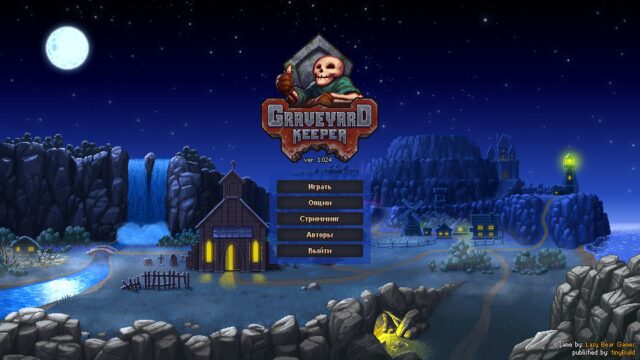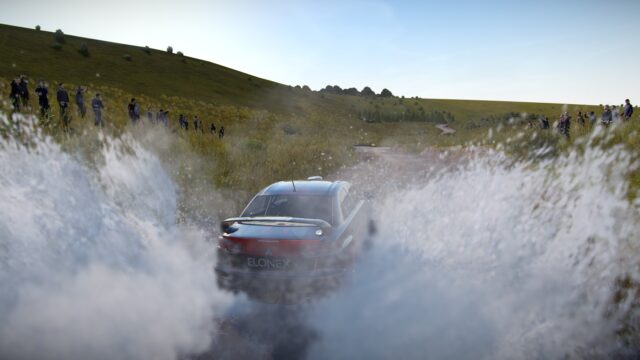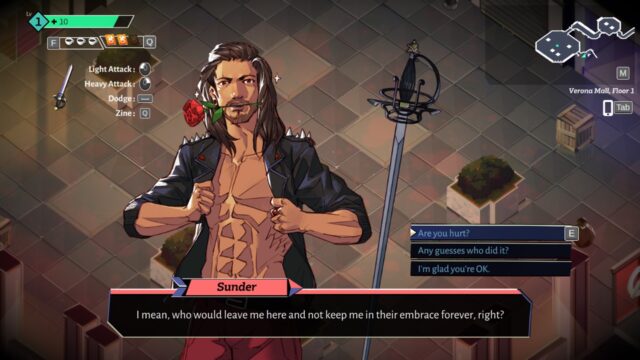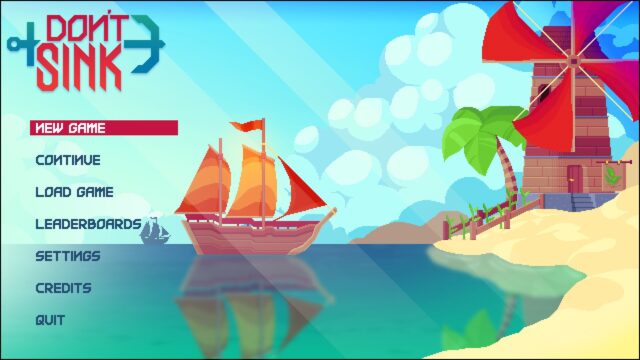Gifts from Olympus – Titan Quest: Anniversary Edition Review
Titan Quest achieved its place on the sacred summit ten years ago, where only the best games sit. Emerging from nowhere, like all the other “Diablo killers,” it didn’t actually kill anyone, but it gracefully nudged Blizzard’s unwavering favorite and became an alternative benchmark for ARPGs. It is safe to say that it rightfully earned its place.
However, it did have one flaw. The Achilles’ heel of this glorious creation, the clay foundation of the majestic colossus, and all the other metaphors from ancient Greek epic. One colossal mistake, for the correction of which… A jubilee edition was released. Yes, now you can skip the intro video when launching the game for the first time. Thank you for your attention.
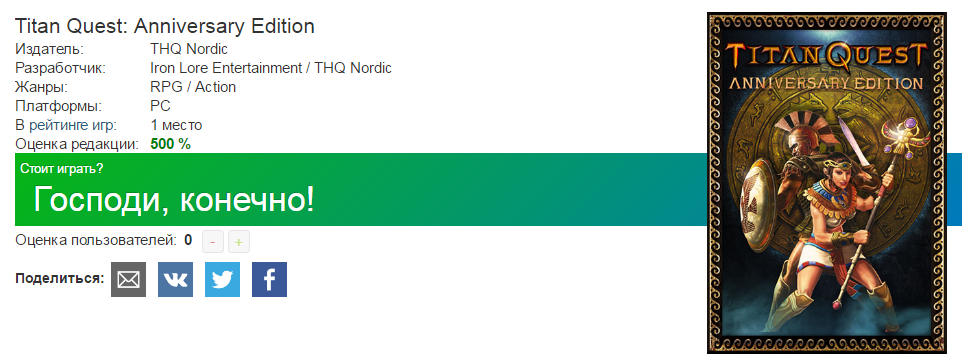
But seriously, there’s no point in talking a lot about Titan Quest. No one will believe that since 2006 you haven’t heard of it and don’t know that it’s a game about a mythical hero experiencing a collection of ancient legends from Greece, Egypt, and Eastern civilizations. No? Oh well, incorrigible…
Well, now you know. The journey begins with a conflict of generations: once powerful Titans, oppressed by next-gen gods from Olympus, are trying to regain their former power. They sever the connection between the current pantheon and the mortal world, unleashing hordes of monsters to assert themselves and prepare the land for their arrival. And as it usually happened in Ancient Greece, only one person can resist the intruders. A person who, for the first 40 minutes of the game, runs around with a rusty dagger because greedy merchants won’t give up a single coin even in the face of the Apocalypse.
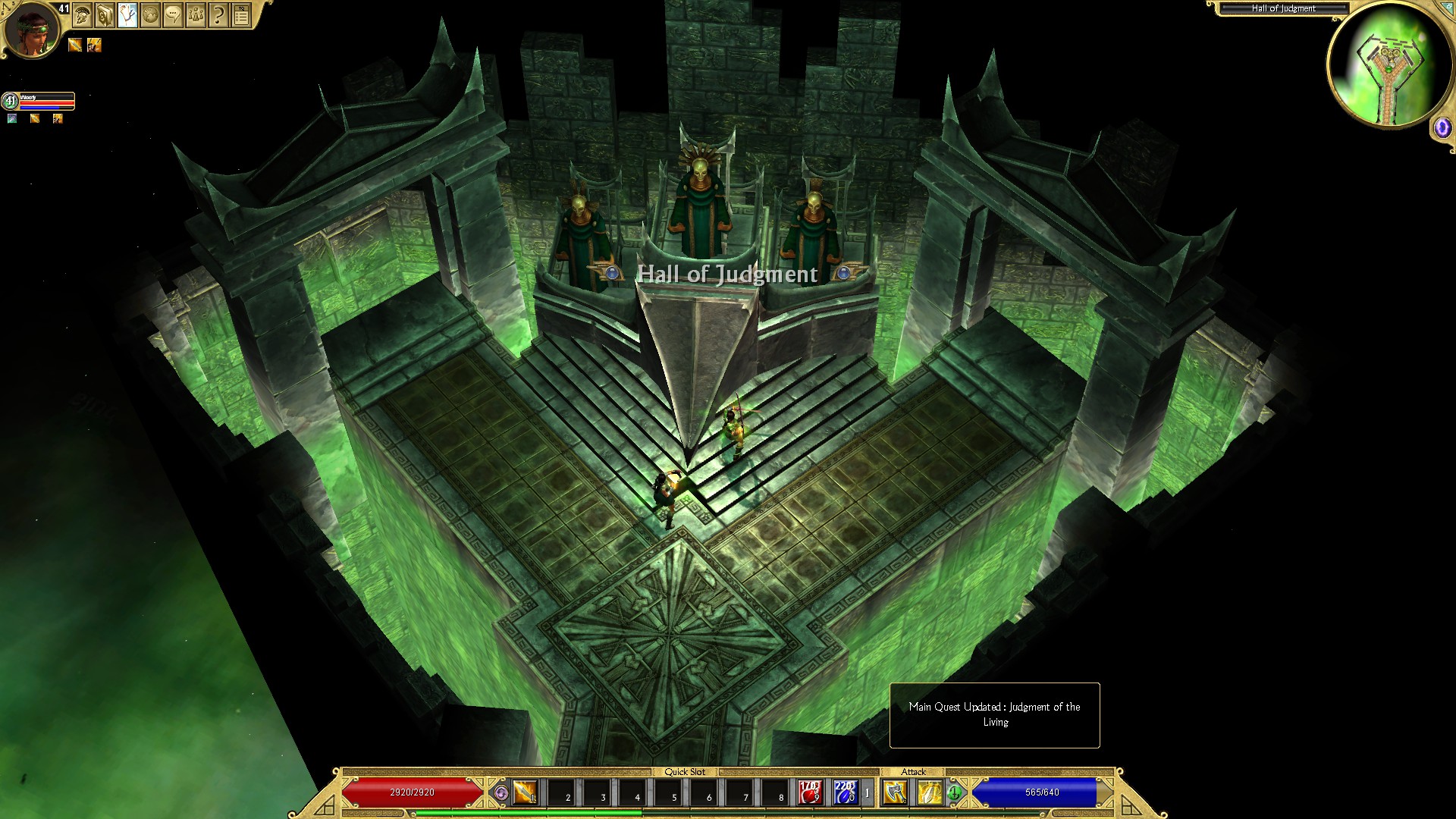
Since the genre abbreviation ARPG roughly translates as “simulator of active ignoring of the plot”, we can finish our acquaintance with the story here. Titan Quest skillfully uses world mythology, occasionally incorporating appropriate images and happily indulging in long and pompous monologues, but it places battles with monsters far above understanding what is happening. All the problems here boil down to a demographic explosion among the aggressive bestiary and are solved through violence. A fortunate coincidence, don’t you think?
However, the setting directly affects the enjoyment derived from it. The traditional system of clicking enemies remains unchanged (and what can be added to it?), but thanks to the unusual design of the terrain and its inhabitants, performing familiar manipulations is still captivating. No tiresome orcs with goblins, no abstract fantasy – only legendary landscapes, wonders of light, and cyclops and harpies roaming the area. It all looks fresh and at the same time awakens the undeservedly forgotten love for mythology instilled by childhood encyclopedias. It’s as if old good friends have returned, only now you can beat them up emotionally.
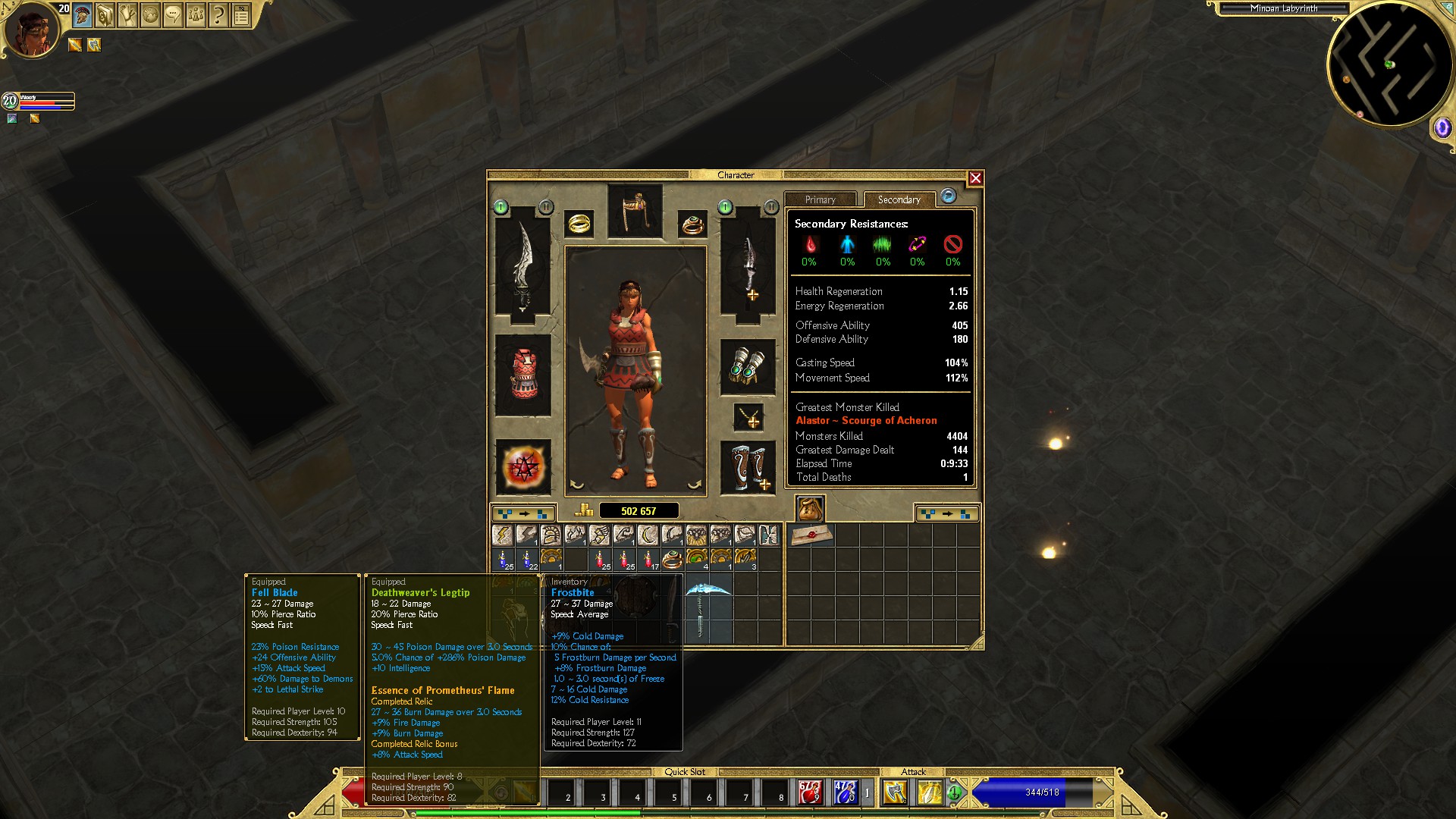
We invite the most observant to find our chief editor’s cameo in the screenshot.
Reducing the population of satyrs, zombies, walking statues, and self-esteem-lacking gods, our hero periodically releases a distinctive bundle of special effects. This means that he has become stronger and is ready for the most interesting and unique aspect of the game – skill development.
Unlike Diablo, the character class here is not determined at creation, but is formed from two specializations during the process. For example, a “pure” warrior at level eight can become a battle mage, assassin, or conqueror depending on whether he chooses the fire, hunting, or defense branch, respectively. In the same way, an ordinary warlock can become a necromancer, oracle, illusionist, or even a druid or summoner. There are over thirty combinations in total, and each profession is in perfect balance with the others.
Needless to say, this deepens the standard mechanics. Even if we set aside repeated playthroughs, which not everyone is inclined to do, Titan Quest offers the greatest freedom in personalizing gameplay style. It allows you to build exactly the kind of character you want and does not confine you to a single class for dozens of hours.
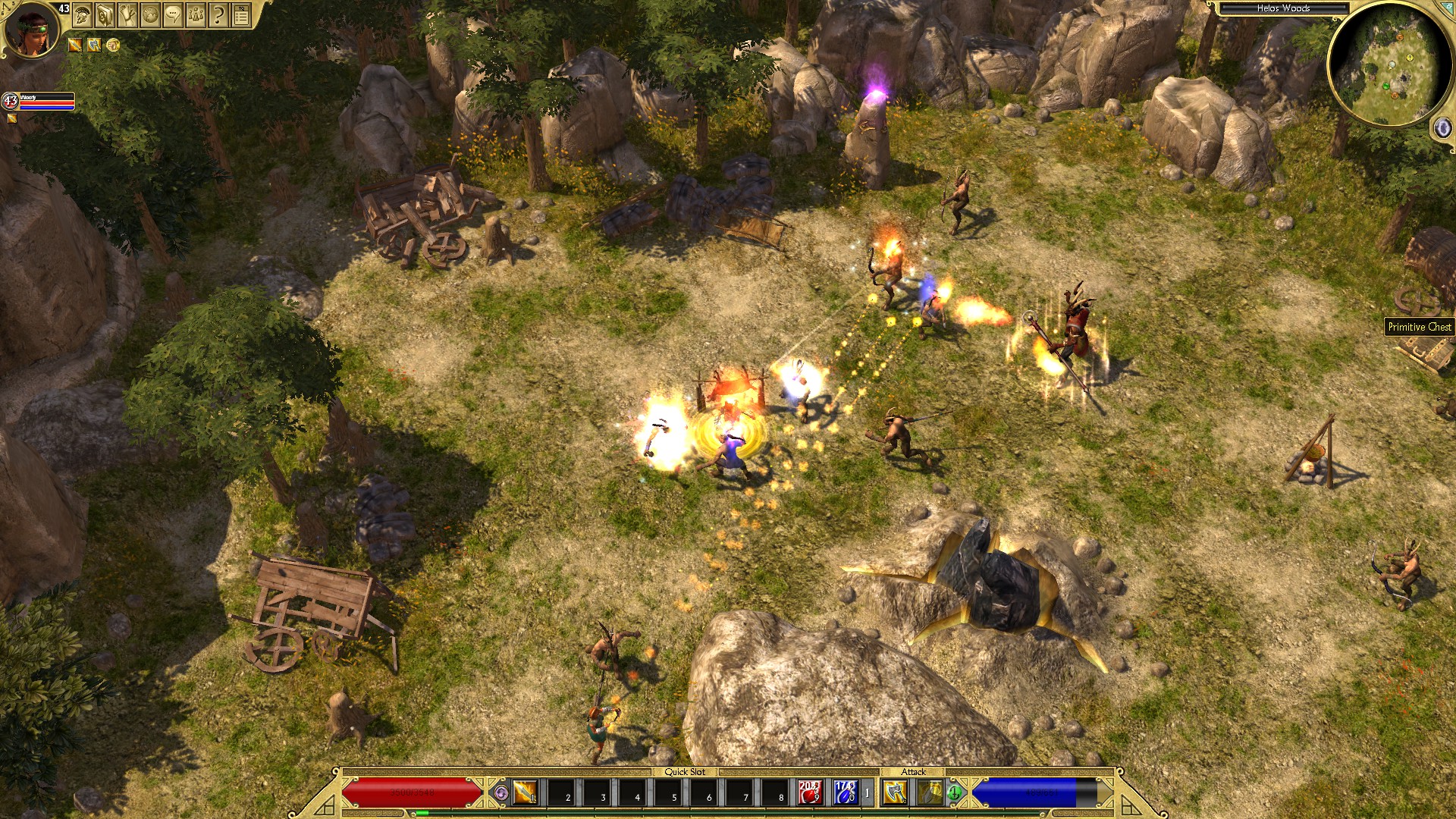
Let in many ways Iron Lore repeated the familiar formula, the combination of atmosphere and flexible role-playing system shot stronger than expected. Unlike the studio itself, its creation is still alive – so it is not surprising that for the round date the game was refined and re-released for the current audience.
The Anniversary Edition follows the most standard program of any remaster, and not that it’s bad. In a big way, for a successful revival of Titan Quest, it was necessary, apart from the mentioned at the beginning of the video, only to transfer to Steamworks rails and adapt to modern resolutions, so we got even too much.
Most importantly, the original game was combined with the massive Immortal Throne expansion. Therefore, a whole bunch of innovations, including a new craft, inventory and storage sorting, are available from the very beginning. And the campaign now feels like a seamless and smooth epic adventure, if you don’t count the sudden increase in difficulty in the fourth act – after all, this is post-game content.
Among other things, THQ Nordic made balance adjustments, which are interesting and noticeable only to editors of thematic wiki pages, added achievements – quite deadly, by the way – collectible cards and, oh, support for Steam Workshop. We didn’t even know that the game had been growing with fan mods all these years, and now not only are they all gathered in one place, but they can also be installed with just one click. It turns out that among the useless additions with skill branches and locations, there are real gems like replacing the player model with a boar.
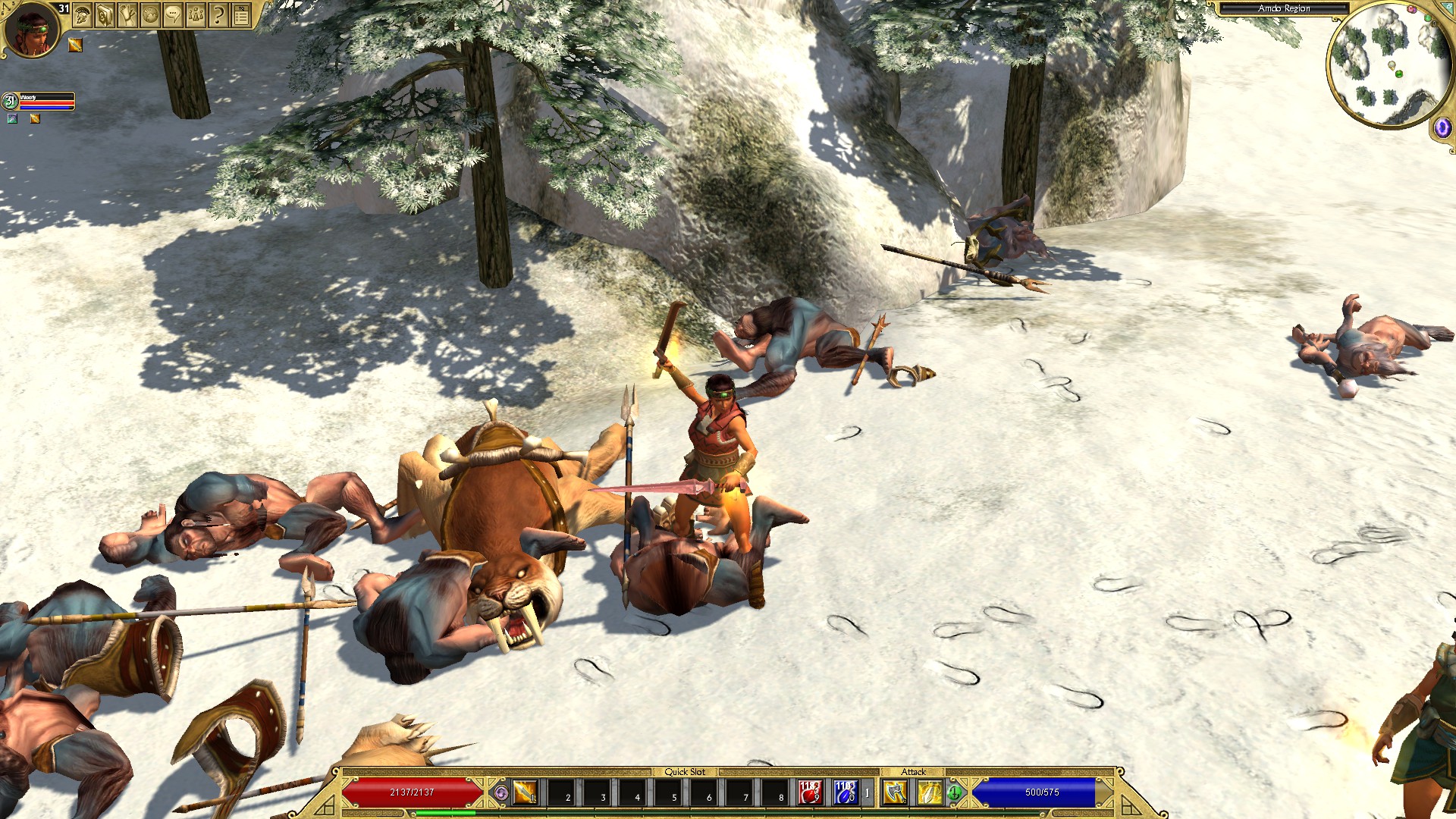
Oh, ragdoll corpses, never change.
Users on Steam talk about the stability of the reissue with three-story structures, and we strongly disagree with them. God knows which gods had to be angered for the game to crash every hour and refuse to connect to servers, like the authors of negative reviews. The only crash we encountered during 35 hours of stable cooperative play occurred when a trade was proposed, but that is obviously for the sake of historical accuracy. It is well known that ancient Greeks exchanged items by throwing them on the ground – it’s faster and more practical.
If we talk about what could have been done better, the cooperative mode could have used some fine-tuning. Although the cooperative mode is excellent, when it comes to comfort, its age definitely shows. For example, the inability to send a description of a found curiosity to the chat, as is done in all current RPGs, is a drawback, as is the lack of a partner’s statistics window. One can get used to the absence of such details, but after playing Grim Dawn, where everything is the same but with conveniences, the old-fashionedness of Titan Quest is irritating.
Nevertheless, the Anniversary Edition is a rare and pleasant event. It pleases both those who have never stopped farming legendaries and start their day with a raid on Olympus, and ordinary mortals who haven’t launched the game in about eight years. Titan Quest delights like the first time, and the remaster successfully enhances that joy.
It may not have been a titanic effort, of course, but it doesn’t hurt to have another reason to remember a wonderful and perpetually relevant ARPG. Especially for free.
Share
Discuss
More Reviews
